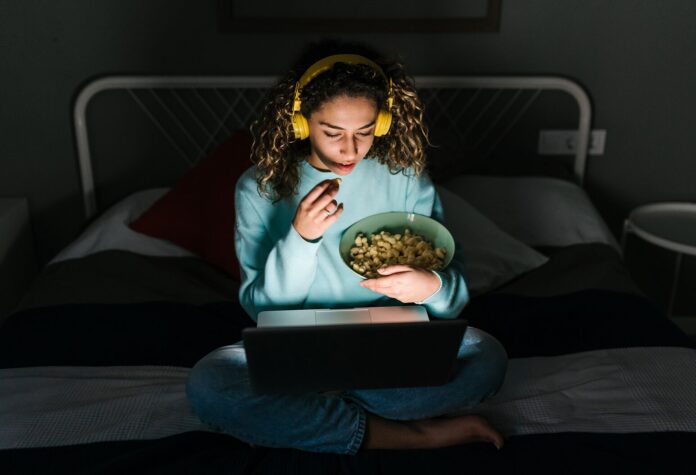Getting rid of the habit of late-night snacking can be challenging, but there are several strategies you can try:
- Set a Routine: Establish a consistent eating schedule that includes three main meals and healthy snacks throughout the day. This can help prevent hunger and cravings late at night.
- Stay Hydrated: Sometimes thirst is mistaken for hunger. Drink plenty of water throughout the day and in the evening to stay hydrated and reduce the urge to snack.
- Brush Your Teeth: Brushing your teeth after dinner can signal to your brain that eating time is over, and the minty taste can deter you from wanting to eat more.
- Keep Healthy Snacks: If you do feel the need to snack, have healthy options available like fruits, vegetables, or nuts instead of sugary or high-calorie foods.
- Limit Access: Avoid keeping unhealthy snacks in the house. If they’re not available, you’re less likely to eat them.
- Distract Yourself: Engage in activities that keep your mind and hands busy, such as reading, knitting, or doing puzzles. This can help take your mind off snacking.
- Identify Triggers: Pay attention to what triggers your late-night snacking. Is it boredom, stress, or habit? Once you identify the trigger, you can work on addressing it directly.
- Get Enough Sleep: Lack of sleep can increase hunger and cravings. Aim for 7-9 hours of sleep per night to help regulate your appetite.
- Eat a Balanced Dinner: Ensure your dinner includes a good mix of protein, healthy fats, and fiber to keep you full and satisfied for longer.
- Mindful Eating: Practice mindful eating by paying attention to your hunger and fullness cues. Eat slowly and savor each bite to help prevent overeating.
- Set a Cut-Off Time: Decide on a time after which you won’t eat anymore, and stick to it. This can help create a clear boundary and reduce the likelihood of snacking.
Would you like more tips or have specific scenarios where you find it hard to resist late-night snacking?



